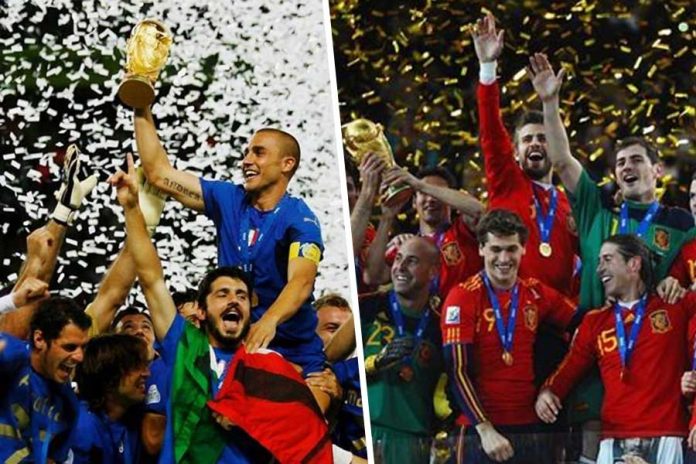The last segment set on a voyage through the tournaments of 1998 and 2002. France won their maiden World Cup title on home soil in 1998, while Brazil lit up the orient with their fifth in 2002.
FIFA World Cup – Journey through History (1998-2002)
The World Cups in 1986, 1990 and 1994 were won by Argentina..
The 2006 edition was hosted by Germany, where the biggest footballing extravaganza returned to Germany after 1974. Africa rejoiced when South Africa was given the hosting rights for 2010, the first nation from the region to set the stage for the big event.
The World ‘makes friends’, Italy wins fourth – 2006
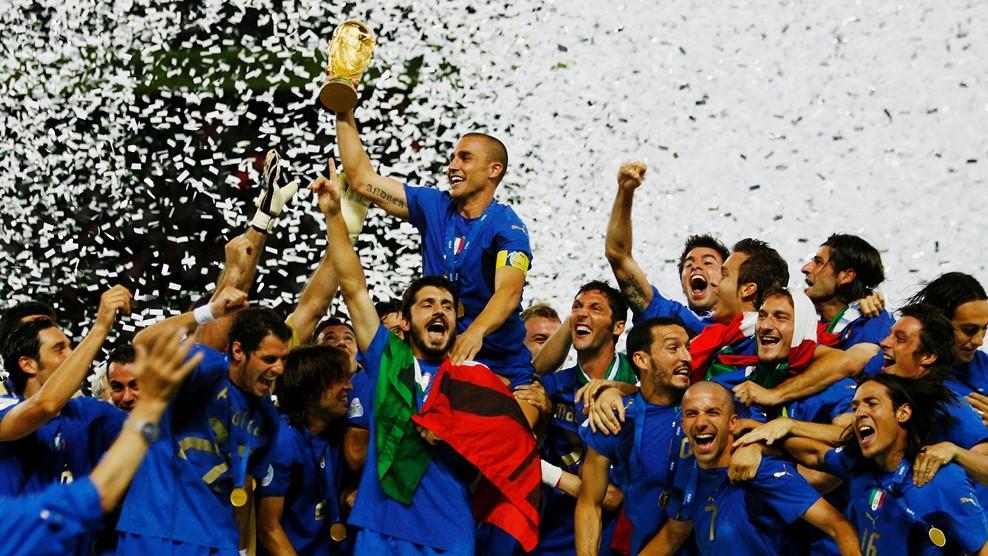
Olympic Stadium, Berlin, on July 9th, 2006 witnessed both the meltdown of a football legend Zinedine Zidane and an Azzurri triumph in a dramatic final decided by penalty kicks.
Amidst the unconventional farewell for Zidane, there was much to admire about the Italians. Marcello Lippi’s men stood consistent throughout the tournament as ten players found the back of the net, while the defense conceded just two goals, one an own goal and the other being a penalty.
Led by defender Fabio Cannavaro, the Azzurri caught the eye with a midfield combination of Andrea Pirlo and Gennaro Gattuso and valiant raids of Gianluca Zambrotta and Fabio Grosso at the back.
‘A time to make friends’ became the official slogan when Germany hosted the World Cup in 2006. Twelve venues located in twelve different cities hosted fixtures.
The hosts opened their account with a 4-2 win over Costa Rica, while Brazil the holders, opened their account with a 1-0 win over Croatia.
In a 6-0 drubbing by Argentina on Serbia & Montenegro at Gelsenkirchen featured arguably the most perfectly constructed team goal in history, where 25 passes ended in a splendid finish by Esteban Cambiasso.
Italy qualified for the knockouts by topping their group while conceding just one goal (an own goal). During the match between Australia and Croatia, referee Graham Poll mistakenly inflicted three yellow cards to Croatia’s Josip Simunic.
The Swiss met Ukraine in their round of 16, where after goalless 120 minutes, Ukraine won 3-0 on penalties. This made Switzerland the first team in a World Cup to fail to convert any penalties in a shootout. They also became the first team to exit a World Cup without conceding a single goal in the tournament, indeed the only nation ever to participate in a World Cup without conceding any goals.
Brazil’s 3-0 win over Ghana included Ronaldo’s 15th career goal in World Cups, surpassing Gerd Muller’s record of 14 goals.
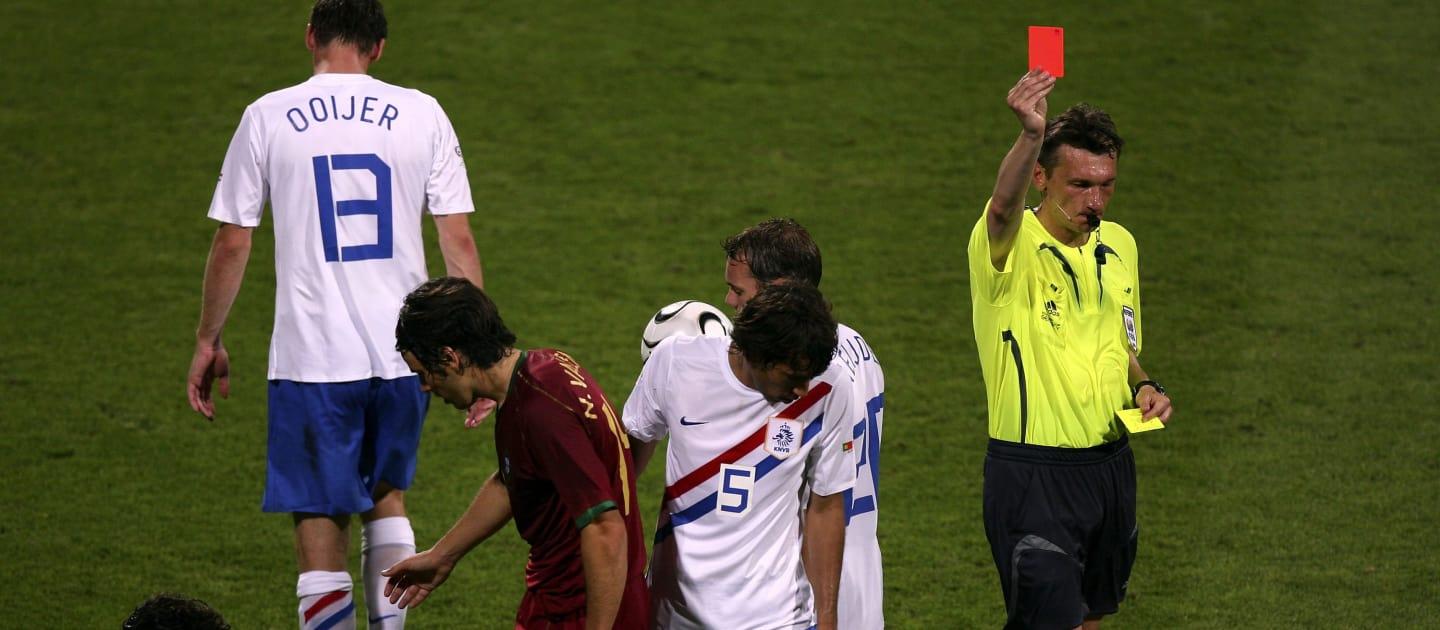
Dubbed ‘Battle of Nuremberg’, a bitter encounter between Portugal and Netherlands presented 16 yellow cards and 4 red cards by Russian referee Valentin Ivanov, a record for a single game.
After beating Argentina in penalties, Germany met Italy in the semi-finals at Dortmund. But it was heartbreak for the hosts as two late goals during extra time, courtesy Fabio Grosso and Alessandro Del Piero set Italy en route to the final.
At the other end France, having beaten defending champions Brazil, beat Portugal 1-0 to reach their first final since 1998.
The Olympiastadion in Berlin hosted the final between Italy and France on 9th July 2006. During the match, France opened the scoring through a penalty by Zidane, forcing Italy to concede only their second goal in the tournament.
Marco Materazzi then leveled the scores in the 19th minute following an Andrea Pirlo corner. Scores levelled on 1-1, the game headed into extra time. With 10 minutes to a possible penalty shootout, Zidane was red carded for headbutting Materazzi in the chest.
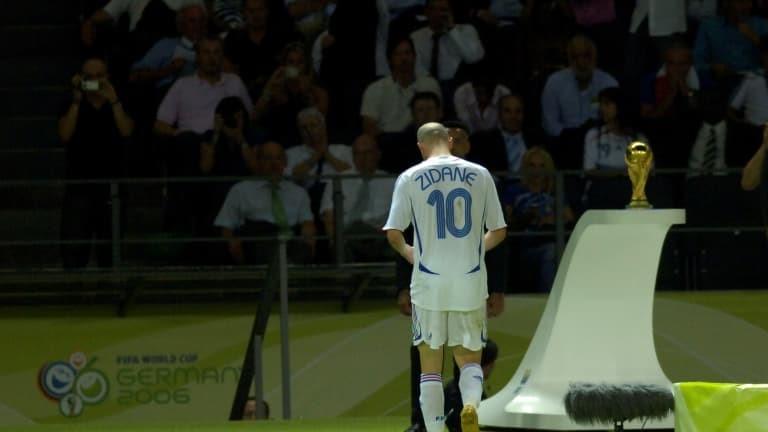
Demoralized without their star striker, the French were rattling towards the end and during the penalty shootout, David Trezeguet, who scored the golden goal against Italy in the Euro 2000 Final, missed his crucial penalty.
Converting all of their penalties, the Italians won 5-3 and their first title in 24 years. With Italy qualifying for the finals and winning it, an interesting numbering pattern too, secured its place. Since 1970, Italy had qualified for a FIFA World Cup final once in every 12 years (1970, 1982, 1994 and 2006), winning it on alternative years (1970 – lost, 1982 – won, 1994 – lost, 2006 – won).
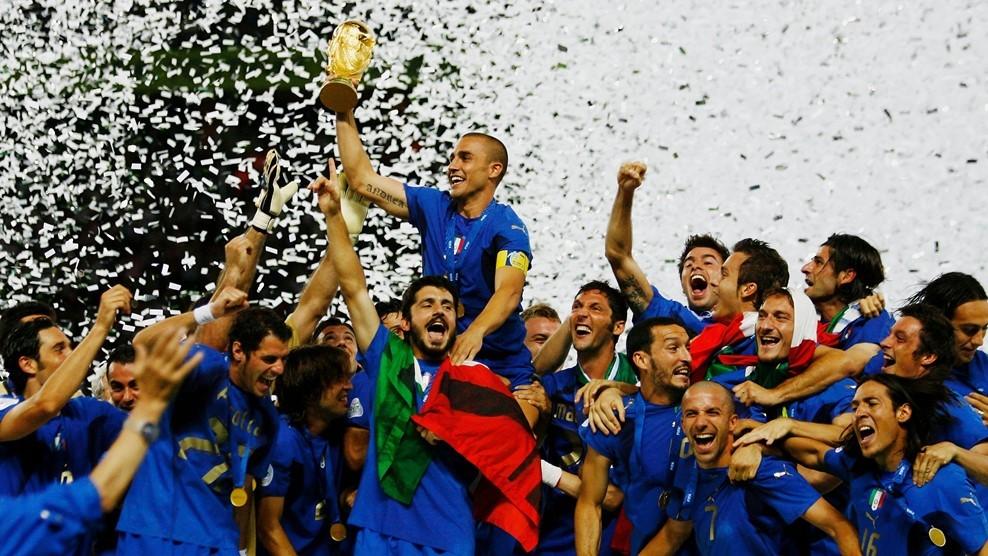
Horacio Elizondo of Argentina became the first referee to officiate both the opening and the final game of a World Cup.
The tournament had a record number of yellow and red cards, 345 yellow cards (Avg. 5.39 per match) and 28 red cards (Avg. 0.44 per match) to be exact. Miroslav Klose won the Golden Boot for his five goals while Zidane won the Golden Ball.
Rejoice for Spain in the ‘Rainbow Nation’ – 2010
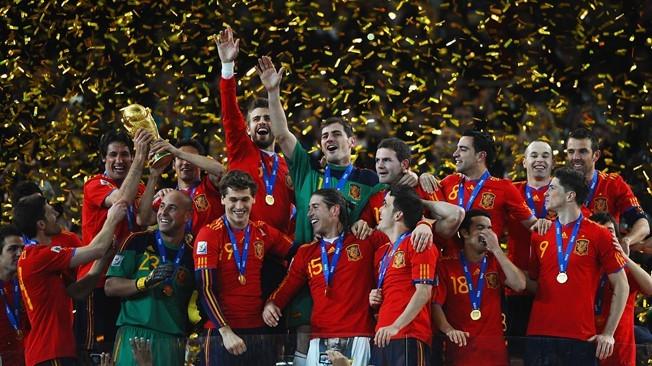
South Africa hosted the 2010 edition, becoming the first African nation to do so, while ten venues were prepared for the big event.
In the opening round, Uruguay topped Group A ahead of Mexico, South Africa and France. The host nation was knocked out following solitary a win against France, one draw and a defeat. The 2006 runners up France were eliminated from the same group after failing to win a single game.
Winning all three matches, Argentina topped their group, with South Korea claiming the other spot. Having been on equal goal difference, the United Sates edged England in their group with two extra goals, while Germany lost 1-0 to Serbia despite topping their group.
Spain lost their opening fixture to Switzerland 1-0 at Durban. Similar to their finalists France from the previous edition, defending champions Italy were knocked out from the first round after failing to win a single game.
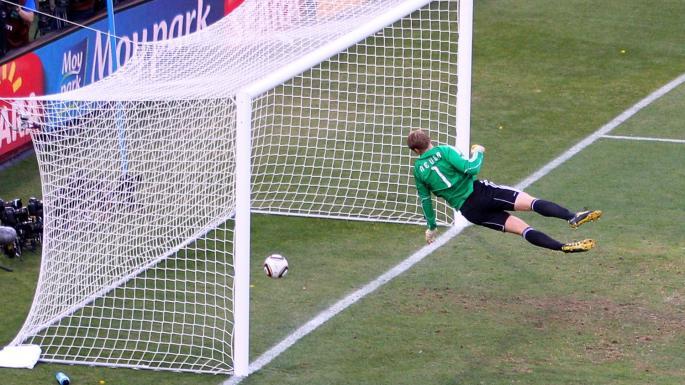
The round of 16 encounter between England and Germany at Bloemfontein was marred by a controversy when a goal scored by Frank Lampard was disallowed as later, replays showed that the ball clearly crossed the goal line. England eventually lost the game 4-1.
Having beaten England, Germany drubbed Argentina 4-0 in the quarterfinals before surrendering 1-0 to Spain in semi-final.
Two-time champions Uruguay entered the semi-finals, for the first time in 40 years, after a thrilling affair against Ghana at Johannesburg. As the game proceeded into extra time with a 1-1 deadlock, a late penalty was awarded to Ghana when Luis Suarez deliberately used his hands to block Dominic Adiyiah’s header on goal, of what would have been the winner for the Ghanaians.
Suarez was given a straight red, while Asamoah Gyan stepped in to take the penalty, also the last kick of extra time before a possible penalty shootout. Much to the shock of the crowd, Gyan’s kick hit the crossbar and the match went into penalties.
Failing to comprehend what unfolded in front of them, Ghana fumbled, and never recovered. Uruguay revived and won the penalty shootout 4-2, eliminating the last African team from the tournament.
However, at Cape Town, the Uruguayans were eventually defeated 3-2 by Netherlands, paving the way for the Dutch to enter their third final and the first since 1978. Spain defeated Germany 1-0 to seal their place.
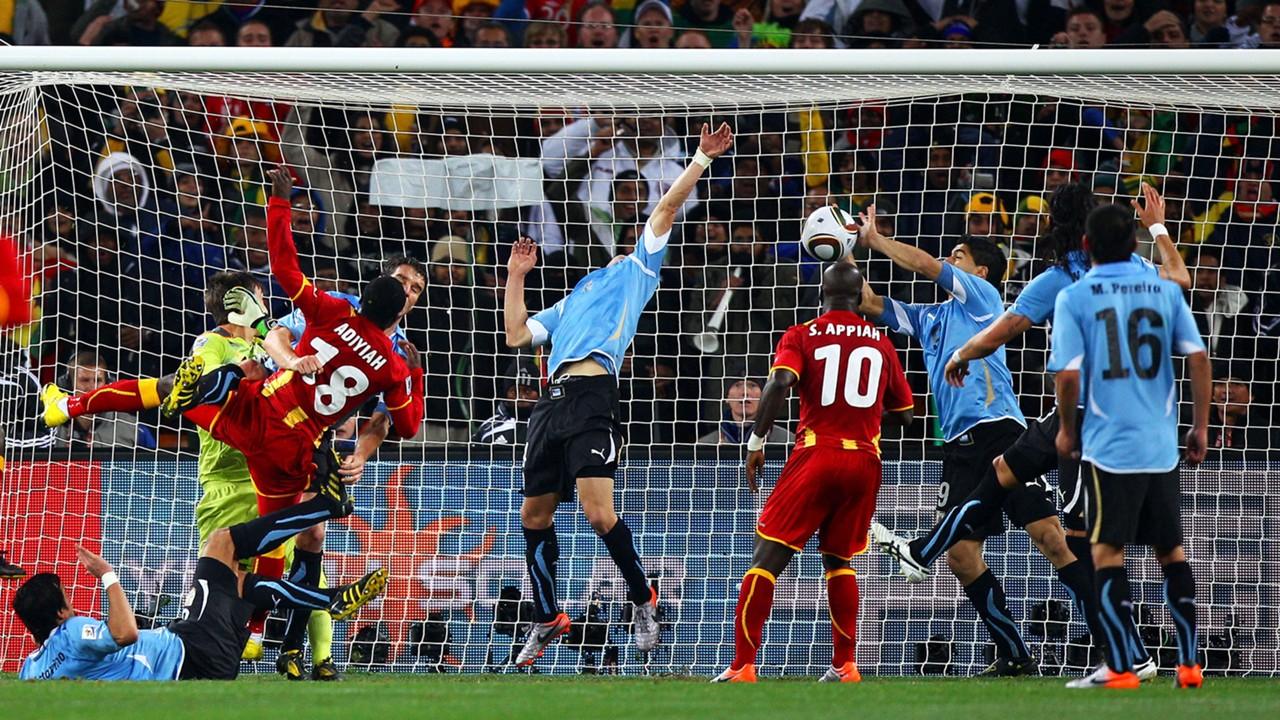
The Soccer City stadium in Johannesburg welcomed the final between Spain and Netherlands on 11th July 2010.
It was the first final since 1978 to be contested between two non-former champions. The Dutch entered the final, with a 100% winning record alongside 12 goals, while the Spaniards came with 7 goals under their attacking force.
A hotly contested game was stalemate at full time. In the 116th minute, an assist from Cesc Fabregas saw midfielder Andres Iniesta scoring from a low half-volley that found the back of the net. His euphoric celebration and removal of his jersey earned him a yellow card.
But underneath he had a white vest with a tribute to footballer Daniel Jarque, who passed away a year earlier. It was evident that Iniesta removed his jersey to reveal the message to his beloved friend, “Dani Jarque siempre con nosotros” (“Dani Jarque, always with us”). Spain won their maiden world title, their previous best performance being a fourth place in 1950.
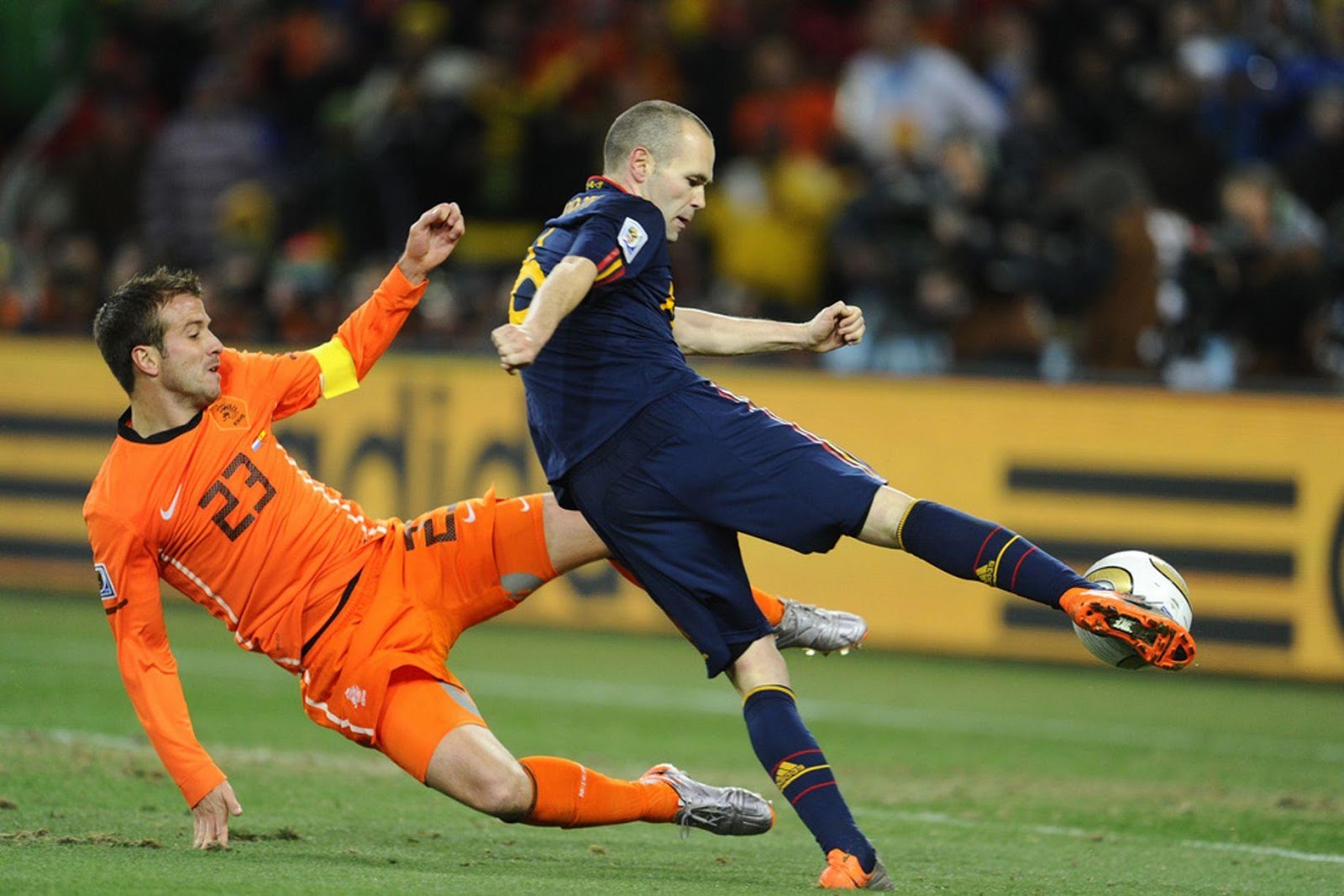
For the Dutch, it was hat-trick defeats, despite their anticipation to tame the losses from 1974 and 1978 finals. The trophy was handed to the goalkeeper-captain Iker Casillas who lifted it amidst the omnipresent hum of vuvuzelas. Thomas Muller won the Golden Boot while Diego Forlan was adjudged best player.
>> For more World Cup News Click Here <<

